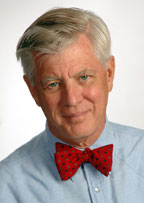Advisors
Pat Hale - Director, System Design and Management Fellows Program - Senior Lecturer in Engineering Systems
 Pat Hale holds a B.S. in Geophysical Oceanography from the University of Washington, as well as the degrees of Ocean Engineer and S.M. in Naval Architecture and Marine Engineering from MIT. His professional interests include application of systems engineering in commercial product development, complex naval system design and engineering process frameworks and methods.
Prior to joining MIT, Mr. Hale completed a 22 year career in the U.S. Navy, qualifying in both Surface Warfare and Submarine Warfare (Engineering Duty) communities, and culminating in managing the design and construction of submarines in Groton, Connecticut. Following his Navy career, Pat held executive-level systems engineering positions in defense and commercial system and product development organizations, including Director of Systems Engineering at both Draper Laboratory and Otis Elevator Company, where he developed and implemented Otis’ first systems engineering process and organization. Since joining MIT in 2003, Mr. Hale has led the MIT-Industry Partner Systems Engineering Certificate Program, a one-year graduate certificate program under SDM, and is now Director of the SDM Fellows program.
Mr. Hale has been a member of the International Council on Systems Engineering (INCOSE) since 1994 and on the board of directors for 11 years. He was president from 2008-2009. He has published papers in the area of commercial systems engineering in the conference proceedings of both INCOSE and ASME.
Pat Hale holds a B.S. in Geophysical Oceanography from the University of Washington, as well as the degrees of Ocean Engineer and S.M. in Naval Architecture and Marine Engineering from MIT. His professional interests include application of systems engineering in commercial product development, complex naval system design and engineering process frameworks and methods.
Prior to joining MIT, Mr. Hale completed a 22 year career in the U.S. Navy, qualifying in both Surface Warfare and Submarine Warfare (Engineering Duty) communities, and culminating in managing the design and construction of submarines in Groton, Connecticut. Following his Navy career, Pat held executive-level systems engineering positions in defense and commercial system and product development organizations, including Director of Systems Engineering at both Draper Laboratory and Otis Elevator Company, where he developed and implemented Otis’ first systems engineering process and organization. Since joining MIT in 2003, Mr. Hale has led the MIT-Industry Partner Systems Engineering Certificate Program, a one-year graduate certificate program under SDM, and is now Director of the SDM Fellows program.
Mr. Hale has been a member of the International Council on Systems Engineering (INCOSE) since 1994 and on the board of directors for 11 years. He was president from 2008-2009. He has published papers in the area of commercial systems engineering in the conference proceedings of both INCOSE and ASME.
Richard de Neufville - Professor of Engineering Systems and Civil and Environmental Engineering
 Dr. de Neufville is an engineer and system designer. His research and teaching now focus on inserting flexibility into the design of technological systems. Major industrial and government projects show that the use of “real options”, enabling managers to react to unanticipated events, significantly increases overall expected performance. This work implies a fundamental shift in the engineering design paradigm, from a focus on fixed specifications, to a concern with system performance under the broad range of situations that could occur. The MIT Press published his book "Flexibility in Engineering Design" (co-authored with Stefan Scholtes of the University of Cambridge) in 2011.
Dr. de Neufville is particularly known for innovations in engineering education. He was the Founding Chairman of the MIT Technology and Policy Program, and author of 6 major texts on systems analysis in engineering. At present he is part of the MIT faculty team developing the new Singapore University of Technology and Design, that features a holistic education centered on technological design.
His work has been recognized by Guggenheim and Fulbright Fellowships, the NATO Systems Science Prize; the Sizer Award for the Most Significant Contribution to MIT Education, the Martore and MIT Effective Teaching Awards, and the US Federal Aviation Award for Excellence in Teaching. The French Government made him a Chevalier des Palmes Académiques. The Delft University of Technology award him with an honorary Doctor of Philosophy.
He has extensive international connections. He holds an appointment from the Judge Management School at Cambridge and has been a visiting professor at the Instituto Superior Técnico (Lisbon); the Kennedy School of Government at Harvard; the University of California, Berkeley; University of Calgary; London Graduate School of Business; Oxford University; the Ecole Centrale and the Ecole Nationale des Ponts et Chaussées (Paris). He spent a sabbatical in Japan as a US-Japan Leadership Fellow.
He is known worldwide for his applications in Airport Systems Planning, Design, and Management. He has been associated with major airport projects in North America, Europe, Asia, Australia – as well as others in Africa and Latin America.
He earned a Ph.D. from MIT in 1965 and then served as a first White House Fellow for President Lyndon Johnson. He did his military service in the Army Corps of Engineers as an Airborne Ranger officer.
In the ESD, he has served as Chair of the Education Policy Committee.
He rows a single scull annually in the Head of the Charles regatta, and regularly goes on week-long hiking treks into the mountains.
Dr. de Neufville is an engineer and system designer. His research and teaching now focus on inserting flexibility into the design of technological systems. Major industrial and government projects show that the use of “real options”, enabling managers to react to unanticipated events, significantly increases overall expected performance. This work implies a fundamental shift in the engineering design paradigm, from a focus on fixed specifications, to a concern with system performance under the broad range of situations that could occur. The MIT Press published his book "Flexibility in Engineering Design" (co-authored with Stefan Scholtes of the University of Cambridge) in 2011.
Dr. de Neufville is particularly known for innovations in engineering education. He was the Founding Chairman of the MIT Technology and Policy Program, and author of 6 major texts on systems analysis in engineering. At present he is part of the MIT faculty team developing the new Singapore University of Technology and Design, that features a holistic education centered on technological design.
His work has been recognized by Guggenheim and Fulbright Fellowships, the NATO Systems Science Prize; the Sizer Award for the Most Significant Contribution to MIT Education, the Martore and MIT Effective Teaching Awards, and the US Federal Aviation Award for Excellence in Teaching. The French Government made him a Chevalier des Palmes Académiques. The Delft University of Technology award him with an honorary Doctor of Philosophy.
He has extensive international connections. He holds an appointment from the Judge Management School at Cambridge and has been a visiting professor at the Instituto Superior Técnico (Lisbon); the Kennedy School of Government at Harvard; the University of California, Berkeley; University of Calgary; London Graduate School of Business; Oxford University; the Ecole Centrale and the Ecole Nationale des Ponts et Chaussées (Paris). He spent a sabbatical in Japan as a US-Japan Leadership Fellow.
He is known worldwide for his applications in Airport Systems Planning, Design, and Management. He has been associated with major airport projects in North America, Europe, Asia, Australia – as well as others in Africa and Latin America.
He earned a Ph.D. from MIT in 1965 and then served as a first White House Fellow for President Lyndon Johnson. He did his military service in the Army Corps of Engineers as an Airborne Ranger officer.
In the ESD, he has served as Chair of the Education Policy Committee.
He rows a single scull annually in the Head of the Charles regatta, and regularly goes on week-long hiking treks into the mountains.
Nancy Leveson - Professor of Aeronautics and Astronautics and Engineering Systems
 Dr. Leveson holds a Ph.D. from UCLA. She was a Computer Science professor at the University of California, then became Boeing Professor of Computer Science and Engineering at the University of Washington.
Professor Leveson’s research focuses on topics related to the design of complex systems containing software, hardware, and human components. Her goal is to stretch current limits of complexity and intellectual manageability of the systems we can build with reasonable resources and with confidence in their expected behavior, particularly safety. Current research topics include; model-based system and software engineering, system and software safety, software requirements specification and analysis, human-computer interaction, reusable component-based system architectures, interactive vludisualization, human-centered system design, and comprehensive approaches to risk management that include the organizational, political, managerial, and social aspects of system construction and operation. New work is starting in security. Current applications include space, aircraft, autos, rail systems, nuclear power, medical devices, hospital safety, defense systems, and others.
Dr. Leveson holds a Ph.D. from UCLA. She was a Computer Science professor at the University of California, then became Boeing Professor of Computer Science and Engineering at the University of Washington.
Professor Leveson’s research focuses on topics related to the design of complex systems containing software, hardware, and human components. Her goal is to stretch current limits of complexity and intellectual manageability of the systems we can build with reasonable resources and with confidence in their expected behavior, particularly safety. Current research topics include; model-based system and software engineering, system and software safety, software requirements specification and analysis, human-computer interaction, reusable component-based system architectures, interactive vludisualization, human-centered system design, and comprehensive approaches to risk management that include the organizational, political, managerial, and social aspects of system construction and operation. New work is starting in security. Current applications include space, aircraft, autos, rail systems, nuclear power, medical devices, hospital safety, defense systems, and others.
